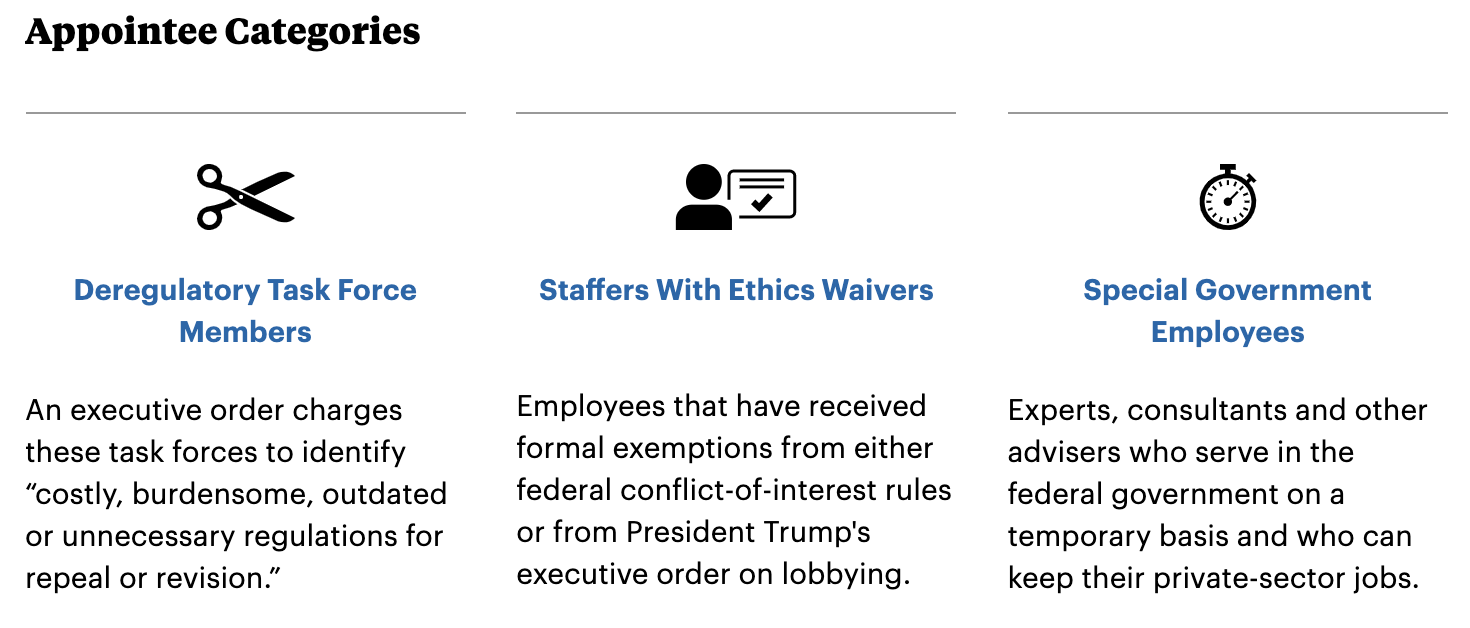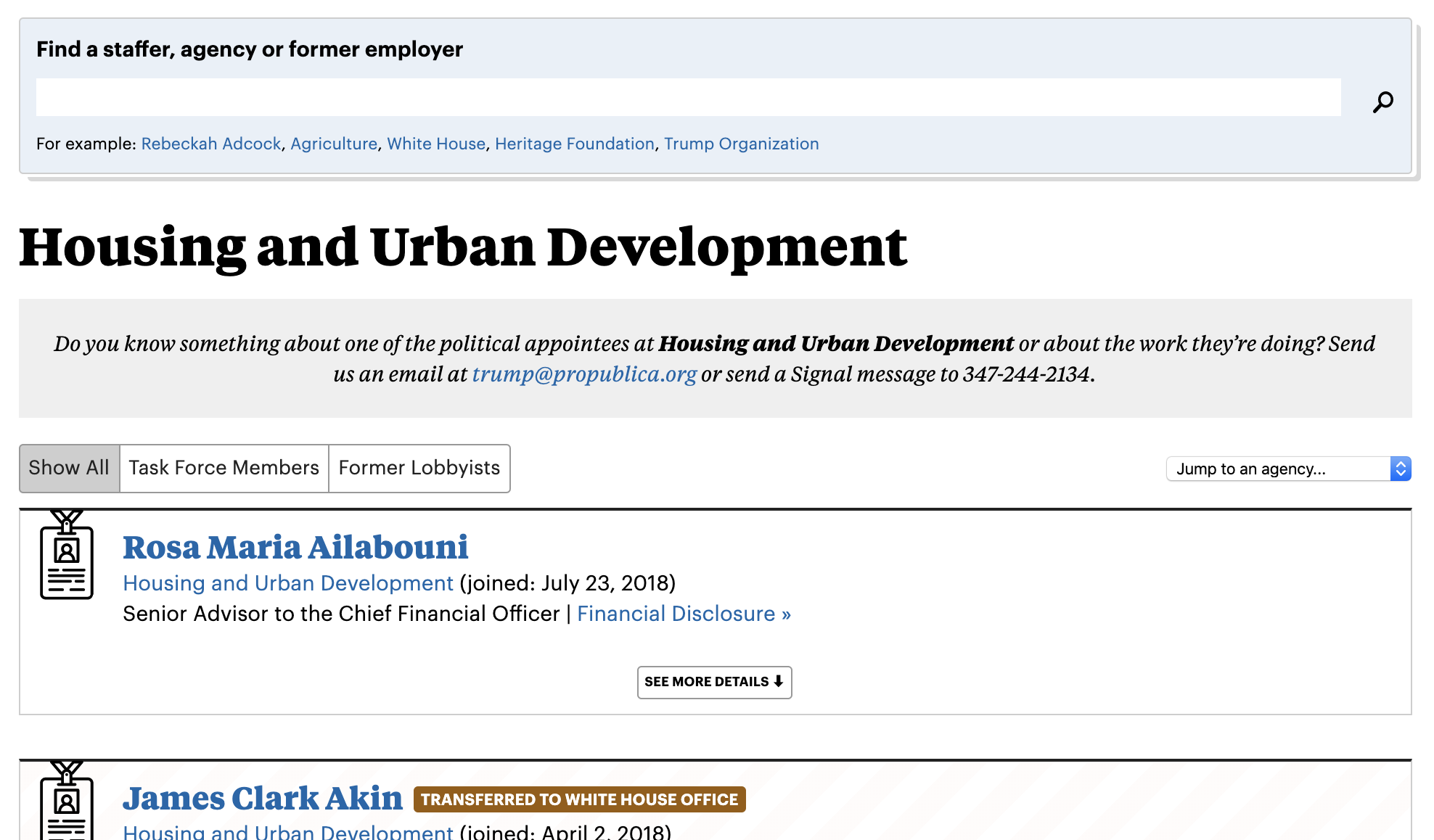Who exactly is running the federal government? To answer this question, ProPublica launched Trump Town, the only public collection of data on the Trump administration’s current and former appointees.
Since its launch, Trump Town has experienced heavy usage from journalists, D.C. staffers, and even members of the government, who don’t maintain a similar list of Trump administration appointments. The project is an example of “resource journalism”: making datasets and document troves available in the name of public interest.
Since being awarded a 2019-20 Magic Grant, the ProPublica team, lead by Derek Kravitz, has been hard at work streamlining their data ingestion pipeline and working on stories like this one that grow out of the database.

That ingestion process starts with a request of all political appointees across the federal government from the Office of Personnel Management (OPM), who provides a readable spreadsheet that forms the basis for the rest of their search. Then, they request financial disclosures from each federal agency, along with information about the lobbyists maintained by the individual agencies’ ethics offices. These documents are stored partly because registered lobbyists who join the government have two years during which they are restricted from handling federal matters where conflicts of interest are obvious. Much of this work of requesting information from the individual offices is currently conducted manually by the team (partly because some of this information is stored in handwritten documents) but is in the process of automation.

The piece they published in October describes the “revolving door” of individuals moving between corporate lobbying positions and the federal government, a common practice in the United States that hasn’t been this closely documented until now. From the Trump Town data, the reporters found 281 such lobbyists appointed by the Trump Administration, compared to only 65 lobbyists that they found in 5 years of the Obama administration, during which time they were not collecting this amount of data — over 2,000 financial disclosures and nearly 4,0000 federal appointees.
ProPublica is no stranger to this hybrid approach where providing data warehousing and search tools becomes itself a journalistic practice. The Vital Signs project, for instance (which grew out of Dollars for Doctors), tracks statistics about individual physicians: surgical complication rates, prescription habits, and even the size of payouts they receive from various drug and device companies. These systems provide tools for journalists to uncover new stories as well as providing a generally applicable resource for the public. Check out their other News Apps here.
The next steps for the project are some of the most interesting. According to Kravitz, they are trying to transform what is now essentially a directory of federal appointees into something that maps those individuals to the tangible impact they have had on policy. The updated version of Trump Town will show “what executive orders they’re helping craft”, in the format of a visualization or explainer. The team is taking on three M.S. students from Columbia’s Data Science Institute and is also working on two more stories that grew out of reporting on the Trump Town data.

